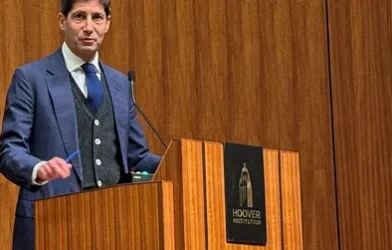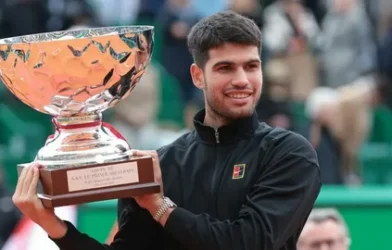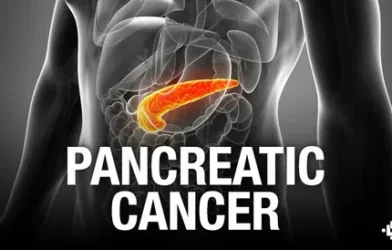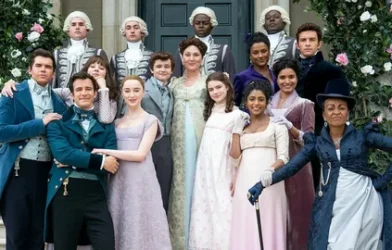On a simmering evening in New Jersey, at the iconic MetLife Stadium, Paris Saint-Germain dismantled Real Madrid with an emphatic 4-0 victory in the Club World Cup semi-final. It wasn’t just a win—it was a statement. PSG, under Luis Enrique, demonstrated not only their tactical maturity, but also their collective identity and depth. For Real Madrid, under Xabi Alonso, it felt like a harrowing awakening.
A Brutal First Half
From the outset, PSG applied fierce intensity, launching a relentless high press. Within six minutes, Raul Asencio miscontrolled the ball, inviting Ousmane Dembélé’s pressure, which set up Fabian Ruiz to calmly score into an empty net. This opener defined the tone: ruthless, precise, unrelenting. Real’s defense, already weakened due to absence of key personnel, faltered again just three minutes later when Antonio Rüdiger miskicked under pressure. Dembélé seized the moment by racing clear and finishing efficiently.
PSG continued to dominate. A swift move involving Dembélé and Achraf Hakimi culminated in Ruiz’s second goal in the 24th minute. The trio’s understanding spoke volumes: they had ingested Luis Enrique’s tactical philosophy, built on trust, movement, and precision. Real’s team looked drained, disjointed, with no clear response. At half-time, PSG commanded around 77 percent possession and completed nearly four times more passes than Real, underscoring the gulf between the two sides.
Tactical Masterclass vs Defensive Disarray
PSG’s victory was more than star power—it was structural superiority. Their pressing mirrored the intensity and coordination seen in modern elite teams. When they lost possession, they fought back in numbers, closing down spaces and forcing errors. Each misstep by Real came as a direct result of this orchestration.
Real Madrid staff and players, by contrast, were fragmented. Their decision to shift from a solid five-man defensive lineup to a vulnerable four-man backline—due to suspension and injuries—exposed them painfully. Without leaders like Toni Kroos and Luka Modric driving rhythm, the midfield felt hollow. Their frontline, though technically gifted, lacked cohesion. Mbappé, Bellingham, Vinícius—it felt heavy with talent yet light in synergy.
In the second half, PSG confidently managed their lead while still creating chances. They rotated players to conserve energy, but their rhythm remained dominant. In the 87th minute, substitute Gonçalo Ramos added a fourth, converting a counter-attack to seal the demolition.
Individual Brilliance in Service of Team
The evening belonged to Fabian Ruiz. His two goals were clinical reminders of his ability to balance elegance and efficiency. But Ruíz didn’t act alone. Dembélé’s new-found diligence off the ball highlighted his transformation—he tracked back, pressed, and constantly forced mistakes. Hakimi’s overlapping runs helped destabilize Real’s weakened defense, providing key passes and movement.
PSG’s blend of experienced and emerging talent was striking. Youth prospects like Desire Doué and Warren Zaïre-Emery, already vital in the Champions League triumph, reinforced the club’s depth. This was not a team reliant on one star—it was a system thriving on collective purpose.
The Toll on Real Madrid
For Real, this defeat felt more than a loss. It exposed systemic fragility. Their defense, already missing key figures, collapsed early. The midfield was overrun, and the attackers failed to press or create cohesion. Mbappé, making his semi-final debut, seemed subdued, unable to assert influence. William Courtois made some fine saves, but conceded that pressing was the decisive difference.
Commentators criticized Alonso’s gamble—starting with a three-striker formation and abandoning defensive solidity. Some suggested he “abandoned his idea,” resulting in a structure that direct pressing could easily exploit. The absence of experienced midfielders exacerbated their lack of balance.
Post-match, Alonso admitted this would be a turning point. He spoke of a “new age,” emphasizing learning and rebuilding. But the scale of the defeat raised doubts about the speed and clarity of his evolution as a manager.
PSG’s Ascendancy and the Road Ahead
PSG’s season has already been historic. They claimed Ligue 1 and Coupe de France titles, and then secured their first-ever Champions League crown with a dominant final. Now they stand on the brink of completing a quadruple by capturing the Club World Cup. Their victory over Real isn’t an anomaly—it’s a reflection of a club at its peak, with a clear identity and remarkable squad depth.
The upcoming final against Chelsea offers another chance to reinforce their legacy. A win would crown a season that blended domestic dominance with European and now global supremacy.
Real Madrid: Crisis or Catalyst?
For Real Madrid, this loss is harsh but perhaps necessary. Alonso’s side is clearly in transition—new manager, new system, missing senior voices from midfield. The convincing defeat highlights the urgency to rebuild—recruit experienced stabilizers, refine their defensive shape, and improve midfield control.
If Alonso can harness this as a catalyst—to properly integrate new signings and clarify the system—Real could emerge stronger. If not, they risk watching a rival era overtake them.
Final Thoughts
This match was more than a contest—it was a turning point. PSG’s synchronized pressing, midfield mastery, and attacking fluidity revealed a blueprint that seems years ahead. Real Madrid, once a benchmark of excellence, looked disjointed and unprepared. This result signals a shift in footballing power, at least for now.













Comments are closed